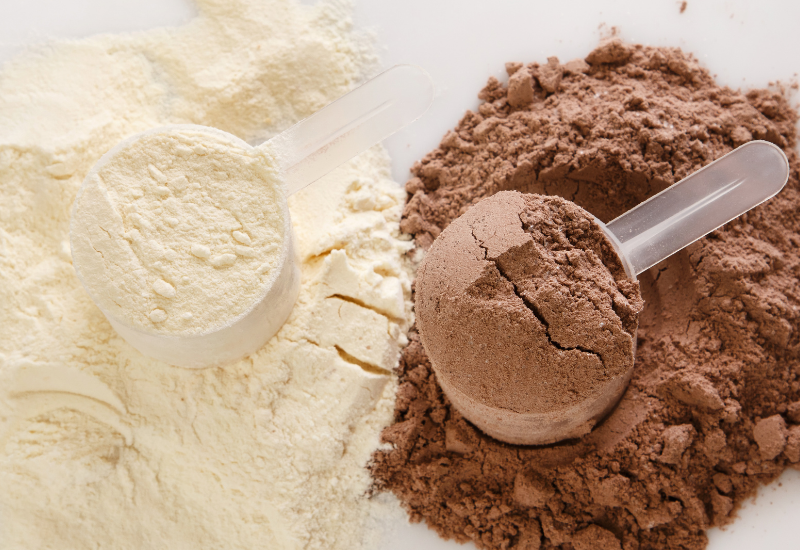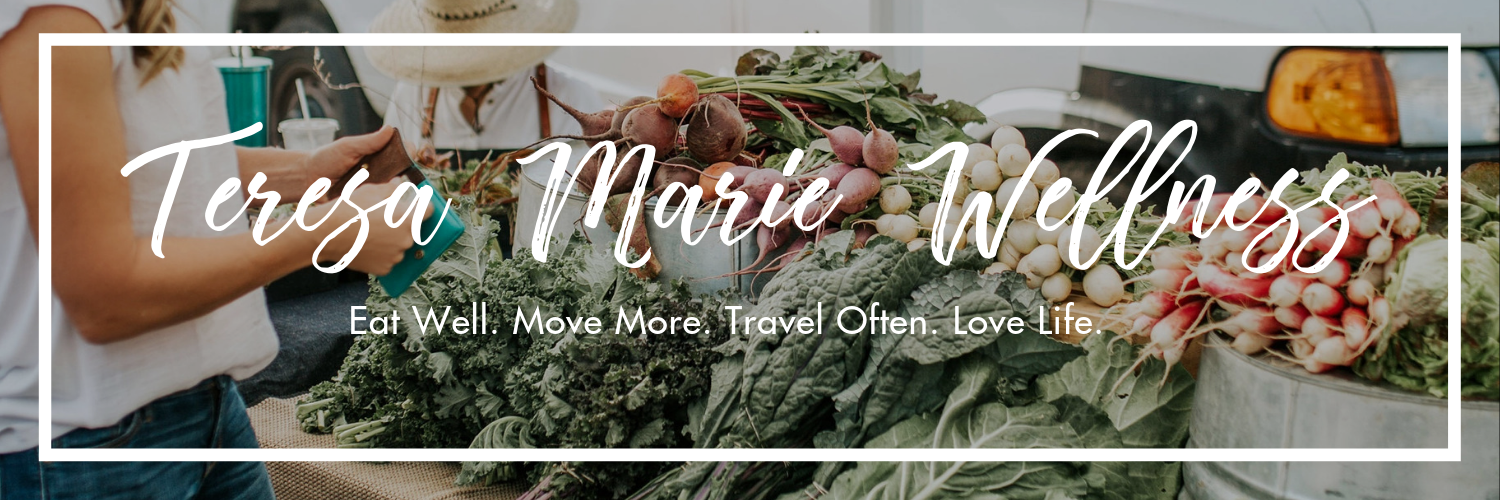How to choose a Protein Powder

People ask me quite a but about how to choose a protein powder that is right for them. And as an unprocessed/plant forward diet advocate, there are few supplements I recommend, as I believe you can get most of what your body needs from real food. But I do believe a good protein powder can be a great way to easily meet your daily protein needs and can be such an incredibly versatile product in your kitchen. You can add it to your blender to quickly whip up a super smoothies or you can even use it in energy balls, pancakes, waffles and other baked goods.
But the protein powder industry is big and not well regulated. You have lots of options to consider as you do your research. To be honest, the topic “how to pick the right protein powder” probably warrants its own thesis. But in this post I’m going to give you the reasons I use protein powder and the few things I look at when considering whether or not to give a brand a shot.
Why is protein important?
Again, that question could warrant a lengthy and long answer, but I’ll give you the quick summary here:
- It’s the building blocks of all tissue and cell formation and required for growth and maintenance of a healthy body.
- It takes a while to digest, making it satiating so that you can feel fuller on fewer calories when you eat higher protein foods.
- Consuming protein with meals can help curb blood sugar spikes that occur from high glycemic foods. This helps to maintain insulin release and a more stable blood sugar but also help stabilize energy, mood and hunger.
- You burn more calories through digestion of protein than of fat or carbohydrates because of its thermogenic effects. You can burn 20-30% of the calories the food contains during digestion, which is higher than the other macronutrients.
How much protein do you need?
Now, that is a HOT topic in the field of nutrition! Some people look at it in total grams some as a macronutrient percentage of total calories. The exact number of grams of protein everybody needs is different based on their size, body composition, lifestyle and at the end of the day, their preferences. Some argue we eat too much, others not enough. I have designated a full post to it here “How much protein do you need and where do you get it?” And it follows the general recommended allowances.
Here are two things I want you to keep in mind when you think about your daily protein consumption:
- You can’t use more protein than your body needs. Excess protein will be broken down by the body, the energy portion burned or stored (potentially as fat) and the excess amine groups will be excreted in the urine.
- Because protein can’t be stored, you need to eat it every day. You can’t think “well I had that 28oz rib eye on Tuesday so I’m good for the week.” It just doesn’t work that way.
Things to keep in mind when looking for the right protein powder for you:
1. What are your goals?
This has got to be the most important thing you ask yourself before you buy any supplement. Are you trying to lose weight? Gain muscle? Improve performance in a particular sport or just get healthy? The answer to those questions will dramatically influence which, if any, type of powder you should purchase.
2. Protein content.
How much protein bang are you getting for your caloric and fiscal buck? Powders can range from 10-50g per serving with a huge variance in total calories, fat and price. Knowing your goals is essential to knowing what you’re looking for here, but generally, most of us will do well with something that has about 20g protein for under 200 calories.
3. Protein source.
The most common protein source is whey and it has good bioavability (your body can easily use the protein), is very efficient and often tastes the yummies. Whey is milk based though so it will not work for vegans or anybody with a dairy intolerance. There are many plant based proteins as well, ranging from soy, rice, pea, chia, mushroom, hemp and beyond. While these are less protein dense and can sometimes a little grittier, they are still my preferred types and a plant forward diet adovcate.
4. Sugar and sweeteners.
Sugar really just is energy, but added sugar is a no-no. Look for how your protein is sweetened. Many save calories by using artificial sweeteners (mostly sucralose) or the natural zero calorie sweeteners like stevia, erythritol, monk fruit or any blend of those. Depending on your goals and how you’re going to use the product, less sugar/sweetener is better so you can toss it in the blender with some fruit and get the added advantage of the natural sweetness from the fruit sugar.
5. Added benefits.
What other little treats did the manufacturer choose to put in there? Added vitamins and minerals like calcium and iron? How about fiber for added satiation and general health? Many are now featuring digestive enzymes and probiotics. Some brands may feature a “fat burning” or other added antioxidant benefits. Again, depending on your goals, all of these little things can nudge you towards the right product for you.
6. Product quality and safety.
I’m not sure the regulations in the supplement industry are as top notch as let’s say the pharmaceutical space. So you want to be careful with the brand you pick and what they’re talking about on the label. Things like organic and non GMO are good. If they don’t say that then it might be worth looking into the product quality a bit more.
Which protein powder do I recommend?
Oh my gosh, this question is hard for me to answer. I’ve tried so many. Some are great, some others…not so much. The base product I’ve been using the Flat Belly Detox Super Smoothies is running in short supply so I’ve actually began the process of procuring my own proprietary custom blend! So in a few months, this question will be very easy to answer. Until then, I do like the Vega Products, and I’m fairly certain you can find them at Costco and the are easy to order online.
Feel free to share your favorite brand in the comments and stay tuned for more details about my own Plant Protein Blend!
About The Author
Teresa Howes
I’m a board certified holistic nutritionist, certified personal trainer, plant forward & flexatarian lifestyle enthusiast and self proclaimed Veggie Ninja. I’m here to inspire and illustrate how delicious, simple and fun healthy living can be!
Related Posts
Gluten Free Acorn Squash Flatbread Recipe
I am so excited to share this unique Acorn Squash Flatbread recipe with you! As…
December 6, 2021Cancer Fighting Smoothie Recipe
I do think it’s aggressive to title this post: Cancer Fighting Smoothie Recipe…
July 25, 2021

